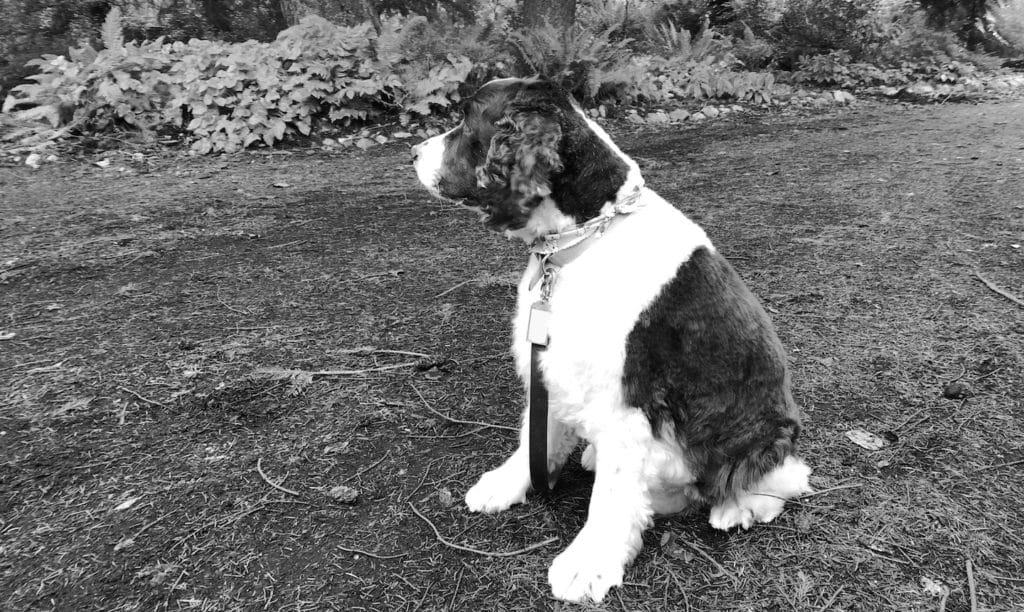
Today, as this post is being published, our dog, the irrepressible Jackson, is being put down. Perhaps dementia was triggering his increased aggression–we don’t know. Our trainer assures us that this is the right way to go; our old dog will be fine and it’s better to let him go now then wait for (another) bite. But no way does this make it easy, especially when most of the time Jackson was adorable. Despite the fact that he was “only” a foster dog, and we had him for “only” six months, the pain of letting him go keeps ricocheting unmercifully, through my body.
Love is love. Jackson will be better off. My husband and I are a mess.
I write because once again I am overflowing with empathy for those who have suffered loss, in any form.
I recognize the first steps in healing: stay away from platitudes (even “that it’s for his good)”, feel the pain, and keep moving. Keep my eyes up, stay present, don’t think too much, and find something, anything, that looks beautiful or feels comforting. I’ll share pictures below.
One thing I’m discovering is that our bodies are masterful at holding pain and trauma when we can’t deal with them. I’m grateful for this–there are times when we need to soldier on, delay dealing with grief, help others, or just get work done. But as much as I can, I want to give my body a little ease, offering times and safe spaces when it can let down, ungird itself from emotional protection, and soften. Maybe I’ll walk slowly, dance, or have a good sob. I figure that’s better than letting my rage fly out at the next inept customer service representative.
This loss, like the others I’ve experienced this year, can teach me to better support others through their losses and bad news. (For that reason, I’d really love to know what works best for you.)
Here’s what my experience has taught me so far:
When the loss is new, the grief acute, or the bad news is fresh: what I need most are friends who can just be present, almost without words or offering only an “I get it.” Being present is helpful at any stage of grief. Hugs are always good, but please don’t mind if I turn away. Sometimes I can’t deal with the pain.
When I’ve taken one step away from the acute pain, I appreciate the friends who can offer condolences and share their experiences–as long as what they offer is empathy, nor sympathy, and they don’t automatically assume that their experiences are the same as mine.
Later, as the grief settles a bit I can appreciate friends who offer thoughts about how to keep going or what to do. (Like please tell me how to find another Springer Spaniel NOW.) One caveat: be cautious with advice, which, unfortunately, can be a way of not being able to “be with” someone else’s pain.
Finally, there is longer-term support. I recently learned that a close family member has cancer–so I’ll be learning to give this form of support. I’m not the queen of cooking meals (not even for me) or baking cookies. Yet, I know that help with the ordinary matters of life: food, rides, visits, or help in the garden can be appreciated, especially when custom-tailored to the needs and desires of the person experiencing grief, or encountering a health crisis, as a patient or caretaker.
Today, in my grief, I move a small step at a time, trying to live in my senses rather than in my mind. A sweep of lavender. The smell of a rugosa rose. The crunch of fresh lettuce. The nuzzle of a horse on my neck. The beauty of a mushroom.
Rather than writing more, I’ll send a few images that have cheered me from the farm.
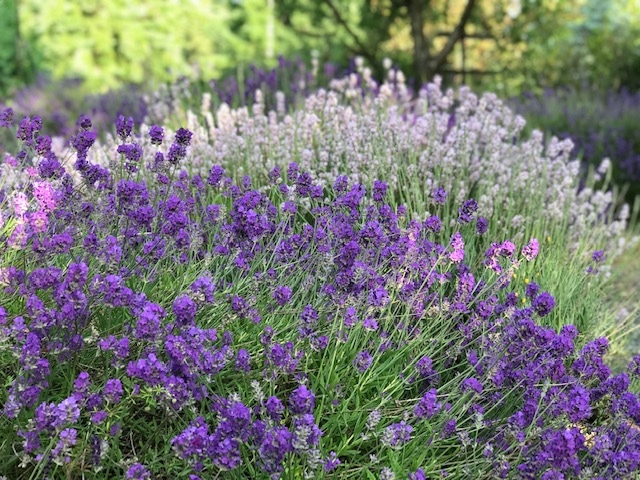
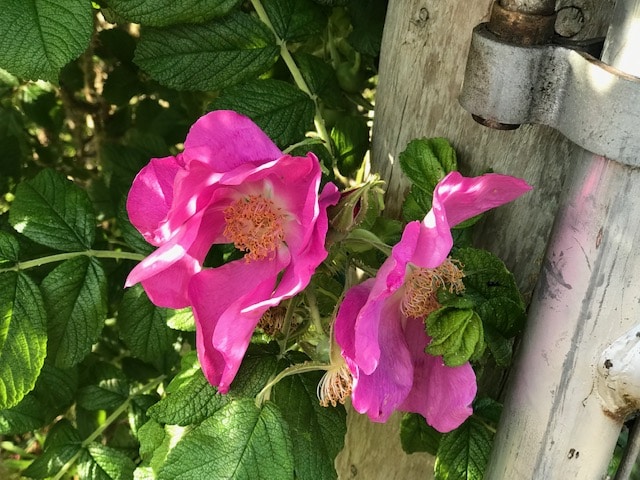
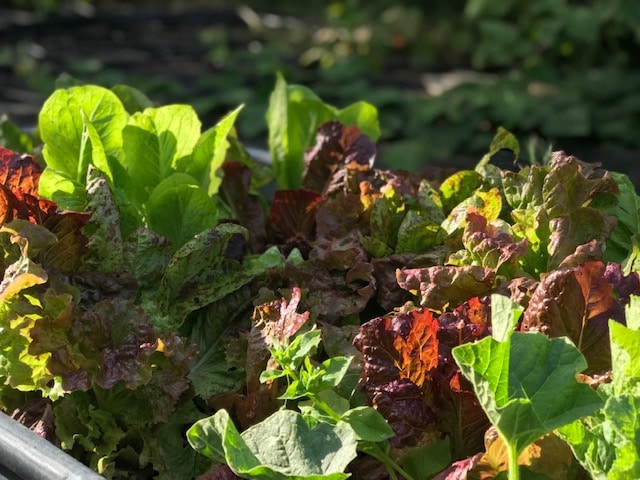
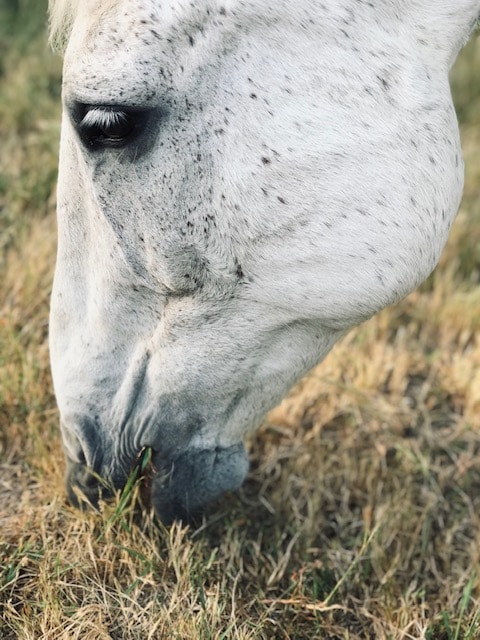

Tell me what helps you. I really want to learn.










8 Responses
I’m sorry for your loss, Sally.
This has meant something to me when I need consolation. Hoping these
quiet words might help to invoke such a friend and conjure up whatever
magic as you may need:
“The friend who can be silent with us in a moment of despair or
confusion, who can stay with us in an hour of grief and bereavement,
who can tolerate not knowing… not healing, not curing…
that is a friend who cares.”
— Henri Nouwen (1932 – 1996)
Beautiful, thank you,
When I’m experiencing grief I remind myself it’s okay to allow the feelings to come out. I also remind myself to remain in my sovereignty so the feelings don’t take control of me. Many times I’ll become aware that old grief feelings that were suppressed, for whatever reason, from the past will surface also. I allow that to happen and welcome the opportunity to finally express them and let them go / forgive if necessary etc. I find it’s important to give myself as much time as I need to do this. Many times the grief comes in waves. Also I find it’s important to have down time everyday where I have nothing scheduled and can be with whatever surfaces. Being kind and gentle with myself like a nurturing parent is a must. Experiencing grief is a beautiful way to allow the body to cleanse.
Wise advice Viana, thank you. I think you are spot on. There’s so much to grieve about in our country today–maybe I should be grateful for the opportunity to cleanse my heart.
Being companions and custodians of beings that have a life span shorter than ours leaves us open to inevitable grieving. When missing the company of one, the company of another of my lovelies is my favourite tonic. Often it also triggers happy memories of times well spent with the one who is missing. That helps me remember I did my best to enjoy our time we were given and savour the gift of their loving presence.
You’ve been a gift to the dog-world, Carmel.
your words so resonate. Know that you are loved by many. Let all of us that are your friend(s) share your pain, feel your grief, and be there for you, in any way, big or small…..HUGS my friend…My arms surround, and hold you close, and let you go, when you need to go. Sorry I missed being able to talk with you today…
thanks Kathy, I know you’ve been there. Your plants gave me some cheer!